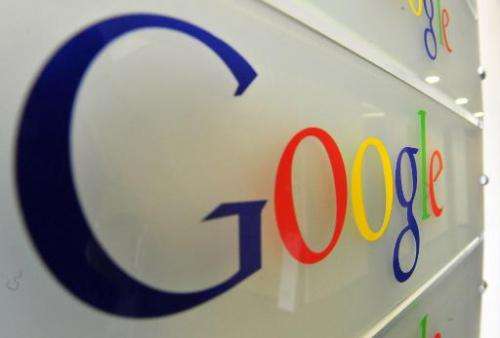Prize money for the prestigious Turing Award for brilliance in the computing industry has quadrupled to $1 million after a cash injection from Google
Prize money for the prestigious Turing Award for brilliance in the computing industry has quadrupled to $1 million after a cash injection from Google, organizers said Thursday.
The Association for Computing Machinery said the payout for the honor would place the Turing Award roughly on a par with a Nobel Prize.
The jump in the amount of the prize reflects the effect computing innovations have had on people's lives and is meant to spotlight scientists and engineers behind important advances, the ACM said in a statement.
"The Turing Award is now funded at the monetary level of the world's most prestigious cultural and scientific awards and prizes," said ACM President Alexander Wolf, a professor in the department of computing at Imperial College London.
"With the generous support of Google, we can celebrate the mainstream role of computing in transforming the world and the way we communicate, conduct business, and access entertainment."
The award was created in 1966 and named for Alan Turing, the British mathematician whose work is widely held to have influenced computers, robotics, cryptology, artificial intelligence and more.
A film chronicling Turing's turbulent life and times—"The Imitation Game"—is due for release later this year and is tipped to figure among contenders at next year's Oscars.
Winners of the Turing Award tend to be scientists or mathematicians whose names are not widely known but whose pioneering accomplishments underpin computing innovations that now touch on many aspects of modern life.
"We think it's important to recognize when people make fundamental contributions in computer science, and we want to help ACM raise awareness of these innovators and the contributions they've made to the world," Said Google vice president of engineering Stuart Feldman.
The 2014 Turing Award will be the first raised from $250,000 to a million dollars, and it will be awarded at an event early next year.
For a time Google and Intel funded the award, but Intel has since stopped contributing to the prize money.
Last year's Turing Award was given to Leslie Lamport for modeling and verification protocols that improved performance and reliability of computer systems, according to the ACM.
Past Turing Award winners include Vint Cerf and Robert Kahn for pioneering work on the Internet's basic communications protocols, and Douglas Englebart (1997), for the development of technologies such as the computer mouse and hypertext.
ACM describes itself at the world's largest education and scientific computer society.
© 2014 AFP



















